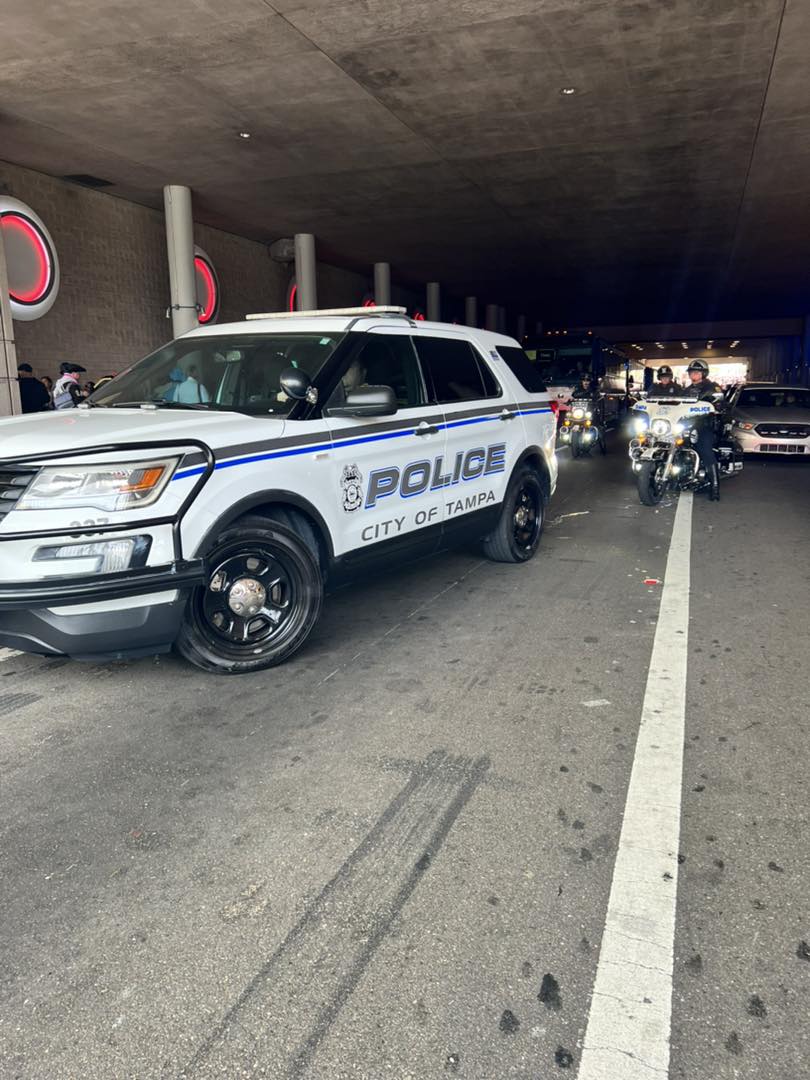
A Police Stop Is Enough to Make Someone Less Likely to Vote - Bolts
Florida Governor Ron DeSantis grabbed headlines throughout 2022 for practices that weakened democracy—from creating a police force to monitor voting to coordinating the arrests of people who allegedly voted illegally... Read More
 boltsmag.org
boltsmag.org
New research shows how the communities that are most heavily policed are pushed away from politics and from having a say in changing policy.
Jonathan Ben-Menachem | February 1, 2023

Facebook/Tampa Police Department
Florida Governor Ron DeSantis grabbed headlines throughout 2022 for practices that weakened democracy—from creating a police force to monitor voting to coordinating the arrests of people who allegedly voted illegally after the state told them they were eligible. In August, he suspended Tampa’s elected prosecutor, Democrat Andrew Warren, over his stated refusal to prosecute cases relating to abortion and trans rights, overriding voters’ decision.
But a host of more routine decisions made by Florida officials may be undermining the health of the state’s elections as well, even when they don’t seem directly related to voting rights.
To replace Warren as state attorney of Hillsborough County (home to Tampa), DeSantis appointed Susan Lopez, a member of the conservative Federalist Society. One of Lopez’s first decisions was to rescind a policy implemented by Warren to not prosecute bicyclists and pedestrians for certain traffic charges. A 2015 Tampa Bay Times report exposed the Tampa police department’s relentless ticketing of Black cyclists for things like having inadequate lighting, or riding on handlebars, a dynamic local organizers have labeled “bicycling while Black.” The report catalyzed a Justice Department investigation which ultimately confirmed the disproportionate enforcement.
New research shows how such low-level interactions with the police can undercut our democracy by reducing the number of people who participate in elections. A study I co-authored with fellow researcher Kevin Morris, published in December in the American Political Science Review, finds that traffic stops by police stops in Hillsborough County reduced voter turnout in 2014, 2016, and 2018 federal elections.
Our study compared the voter turnout of Hillsborough motorists who were stopped by police shortly before and after each election. Drawing on information about each person’s turnout in past cycles, we found that these stops reduced the likelihood that a stopped individual turned out to vote by 1.8 percentage points on average. The effect held when accounting for characteristics like race, gender, party affiliation, past turnout, and prior traffic stops to improve our comparisons. The discouraging effect of stops was slightly higher in 2014 and 2018.
These results make clear that the collateral consequences of policing—including worsening outcomes for economic security, educational attainment, and health—also extend to political participation. If the communities who are most frequently subjected to policing are also discouraged from voting as a result, it could create a vicious feedback loop of political withdrawal.
Why would traffic stops make people less likely to show up to the polls? Past research has already established that the most disruptive forms of criminal legal contact, like arrest and incarceration, discourage people from voting. Our study shows that low-level police contact matters in the same way. If a traffic stop makes a motorist fear that the government will harm them, it can prompt a withdrawal from civic life that political scientists call “strategic retreat.” Motorists might worry that a routine traffic stop could escalate into police violence, a more common outcome for Black people in particular. Beyond justified fears of violent victimization, voters might also bristle at the perception of being targeted to raise revenue through excessive ticketing. Accordingly, if incarceration ‘teaches’ would-be voters that their government is an alienating and harmful force in their lives, traffic stops could catalyze a similar form of ‘learning.’
“I think that people see police as a part of the government,” Bernice Lauredan, director of voter engagement at Dream Defenders, an organization that champions voting rights in Florida, told Bolts. “I don’t believe any interaction with police is safe for people of color–having any interactions with police gives them a negative image of the government. And it may give them a negative idea of voting.”
